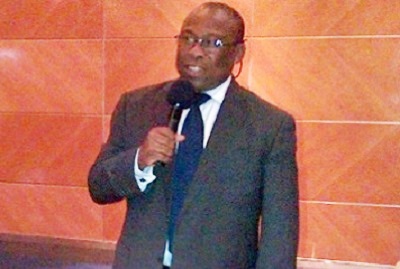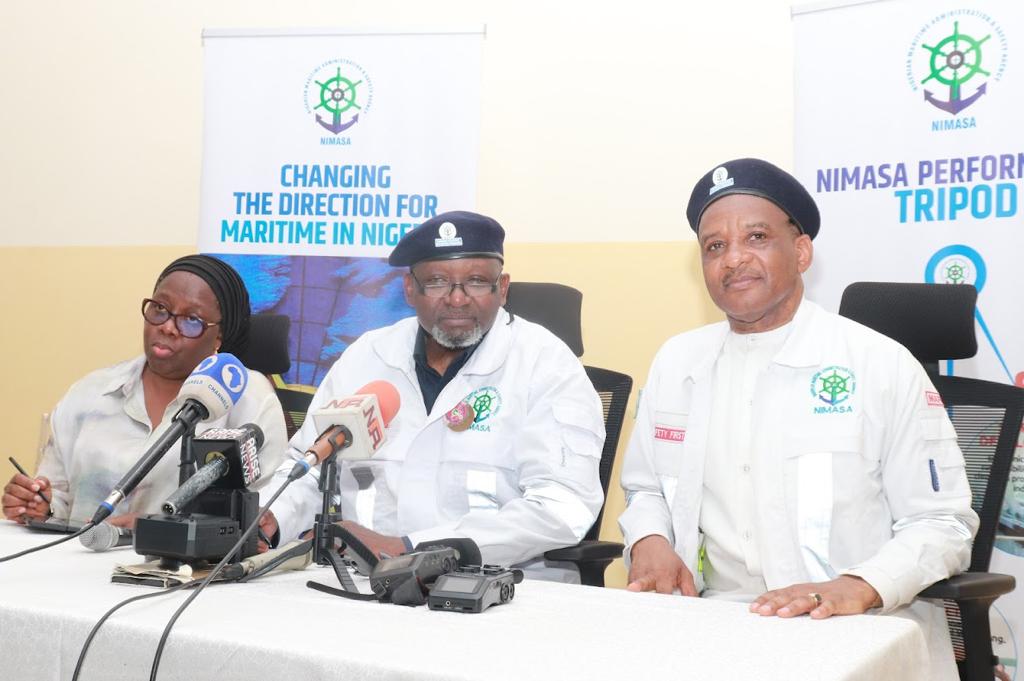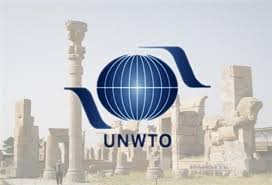Barring any last minute understanding, the Nigerian Maritime Workers Union (Dock Workers) is set to embark on strike action come February 6th to press for seamless access to Tincan Port facility. Capt. Iheanacho Ebubeogu, General Manager, MD’s Office at the Nigerian Ports Authority (NPA), was at a Lagos based TV station on Tuesday to explain issues. Business Hilights monitored his presentations.
Excerpts:
Could you refresh our minds on what and what are actually forced Maritime Workers Union to give seven days ultimatum to down tools?
Yes as we speak, the Wharf Road end of the expressway leading to the port is improving. I am a testimony to that because I leave in Apapa. I just got here within 40 minutes to show you the level of improvements on the Wharf road.
Improvement is coming from the fact that we have adopted a one-lane system where all the trucks going to the port, should take one lane and then, be orderly.
Well, there are narrows, and what we have done as Nigerian Ports Authority (NPA), is to have tow trucks on the same road. So that should any truck breakdown, it will be attended to within seconds to free traffic.
We are also collaborating with other agencies to manage the traffic.
It’s good to understand what the port is and how it works. The port wears two caps. One is a border post where government would have to stop people and good to carry out physical regulatory function. At that point, government agencies check to make sure that people are not embarking on contrabands or bringing in arms that are unwarranted.
Now, lead by that border post operations is the Customs, NDLEA and others.
The other cap has to do with the maritime logistics and that is where the port, the terminal operators, the freight forwarders’ and the likes come in.
As it is, immediately after the ports are the federal roads interconnecting the other highways and hinterlands to the ports.
So, the first thing we thought about was to embark on collaborations. This collaboration am talking about is working tremendously well.
Who are these groups you are collaborating?
We are collaborating with stakeholders in the port operations. These collaborations have even extended to the federal ministry of power, works and housing. The first thing we did was to bring people together in one committee and then tell them what we can do pending when government will intervene. This helped us to carry out some palliative measures.
Then, after that, we have to ask the federal ministry of power, works and housing to do something about the access road leading to the ports for permanent solutions.
We also asked the ministry to tidy up the trailer park we have at the Tincan port axis for usage.
This scheme is almost 90 per cent complete as am talking.
Now, we went further to synergize with Dangote and Floor Mills of Nigeria (FMN) to raise N4.3bn for that road of which only NPA contributed N1.8bn.
That is the one we are doing for the Apapa axis now.
When this strike threat came up, I think on Thursday last week, we had gone with the President of the workers union to say look, despite the fact that this is not our direct responsibility, we looking into how we can give palliative to Apapa-oshodi axis.
Am glad you have continued to use the word; palliative, which means a temporary measure. This is not the first time maritime workers are threatening strike. It happened some time last year and they reach some agreements with the government.
But you are almost painting a different picture that tends to mean that the strike is totally uncalled for. Is that what you are saying?
Yes, I want to give us about three examples of what has happened around us lately. Over time, this country has relied so much on roads only. And when roads fail us and we have to repair them, we start having challenges because we don’t have an alternative. Other alternatives are not measuring up to their complementary roles.
For instance, if you are going to the airport now, because Lagos State government is working on that road, I need to wake up early to beat traffic and get the airport on time to meet my flight.
Even when Abuja airport is undergoing repairs, traffic was moved to Kaduna airport and many took rail as alternative to road from Abuja to Kaduna airport and back.
Now at the port area, we do not have such grace and alternative because only the roads are working.
I think it’s good to take us back to the history of port development in Nigeria. In 1970; that is after the war, when the government of Gen Yakubu Gowon embarked on rehabilitation, rehabilitation and reconstruction, the entire port was to handle a throughput of 37m per annum.
However, thanks to population growth and business expansion and other things, as at 2014, we handled 84m throughput.
Even at the heat of recession, it only dropped to 77mmt per annum. This means that the resilience of the port has been stretched to breaking limits.
But would you agree that the problem wouldn’t have gotten to this bad if some of the potholes here and there were fixed quick enough rather than waiting till the road is grounded?
You see, I don’t want to talk for the engineers, but when engineers build houses or roads, they always have a pre-determined capacity. Now, when you stretch such infrastructure beyond breaking limits, then you begin to have challenges.
Other parts of the world, for instance the port they are building at Rotterdam now, they have made it clear and signed an MoU, saying look, 47 per cent of cargo must go by rail; 27 per cent by inland waterways; the remaining percentage by road.
Intermodalism is the answer to this situation in Nigeria. Or else, even if we repair these roads now, we are only going to have temporary respite and this is the approach the NPA is going now.
In fact as am leaving here now, am going for a meeting with the Nigerian Railways Corporation (NRC). And what are saying; look increase your market share of evacuation of cargoes.
Yesterday, NPA held a meeting with some stakeholders who want to embark on the business of cargo barging. Barging is the act of moving containers in a linear manner to place of access. We are looking at Ikorodu or Badagry Creek so that importers can go there and take them seamlessly.
If these intermodal alternatives are in place, then the evacuation is going to radiate away from three sources that is the Inland waterway, rail and roads.
Don’t forget that when we are at the peak of oil business in Nigeria, in the wisdom of those that established refineries in Nigeria, we were to use pipelines. Now, pipelines have failed.
Why did it fail, there was vandalization and maintenance issue.
And in order to make sure that the logistics of distributing petroleum products to all of us, the tank farm owners have to come as close as possible to the ships, thereby narrowing the leg of pipeline mode of transportation of oil products.
Now, coming close to ships means building up clusters of tank farms round the creeks which is another source of this traffic congestion.

From your analogy, you said traffic situation have improved as you managed to come on time to the studio. Now, if actually there is an improvement, why then the strike issue with the maritime workers union now?
You see, accessing Tincan and Apapa ports are via two axis; the Apapa-Oshodi expressway and the Ojuelegba-Wharf axis.
In fairness to their observation, nothing yet had been done by the government on the Apapa-Oshodi axis.
However, government is planning to do what they are doing now on the axis.
In fact move by the government encouraged NPA to rely on our corporate social responsibility (CSR) spirit to be part of the work on Wharf road today.
We are also looking at how we can go on to give palliatives on Apapa axis for mainly Tincan users.
You can notice that since Apapa-Oshodi is blocked, that is why everybody is accessing the port using Ojuelegba-Wharf road even though work is ongoing on it.
How quick and feasible would these upcoming palliative on Apapa-oshodi expressway end of the port be?
Well, like I said as an administration, we had a meeting with their president, the MD of NPA and the management, embarked on a working visit to the Apapa-Oshodi end of the port access road.
The report came out on Friday and based on that we are going to see what we can do as NPA to go out of our way pending the federal government will come, because we are all working for the same government. We won’t say because it is not our responsibility therefore we won’t do anything.
Do you have an idea of when the government would come for the Apapa-Oshodi Expressway end of the port access road?
We are going to embark on two things; palliative and efficient traffic management. And we shall urge the transporters themselves and the workers’ union to know that while they are asleep, there are people thinking overnight on how to solve the situation.
How would NPA be manning the traffic aspect of the palliatives?
It’s going to be a highly collaborative arrangement. Already, the Lagos State Government and the Apapa local government including all the federal traffic institutions are in and we are working out patterns of ordering traffic movement. Everybody is involved and I want to assure you, it’s an all hands on deck thing, because without such level of collaboration, it will not work.
And then, another thing we are conceptualizing for long term is to define what we call port area.
I am glad they (Maritime Workers Union) said it is not only in Lagos that traffic congestion and bad roads are troubling.
I must tell you that out of all the ports we have in the six port cities, only Warri Port that you can come out of the port and you hit the highway.
Others have been inundated by Port City Developments including Apapa in Lagos. So that is why we are advocating for what we call port area.
It is important to stress that Port Area has not gotten anything to do with NPA extending its area of revenue jurisdiction, but to have that collaborative efforts so that we mark an area where traffic will be managed, infrastructure will be managed, security will be managed with respect to the ports.
It seems that the Apapa Port is overburdened. Only recently the National Assembly members came and were looking at the Ikorodu Port as a way of decongesting activities at Apapa and Tincan. How can that idea go?
Am just talking about barging. Barging is the only alternative in bringing in Ikorodu to the picture.
Don’t forget that between Apapa and Ikorodu, there are three strategic bridges. The Carter, Eko, and Third Mainland bridges. All of them have head-room restrictions, which means there is a limit in height of anything passing under them. Under the present circumstance, only the barges can go through.
That is part of the reasons why we are advocating for barging along that route. We learnt that the fourth bridge is coming with rail and that will be good.
Now, come February 6th, should these workers go on strike, what will be the implications to port operations?
Well, you see, Nigeria is an importation economy and we are trying our best not to allow that happen. About 80 per cent of cargo destined for West Africa are meant for Nigeria. This is because of our population and volume of businesses.
Now, about 70 per cent of that 80 per cent is Lagos bound, handled by Tincan and Apapa.
It is important to note that another 70 per cent of that figure finds their way only within about 300kms radius of the country.
So we cannot afford to do that to Lagos. These are part of the reasons why we are continuing our appeal to Dock workers union to consider their stand.
This is why NPA has gone out its way to give that palliative so that activities at ports can continue to avoid stifling the economy and it is important to note that this is not the best time for such action.
Definitely I know they have their grudge. But then, also I want appeal that when we come out with other traffic regulators to structure out how things will be done, we want them in their anxiety and others to comply with what we have agreed upon so that we can reduce the dilemma of the traffic crisis on Apapa-Oshodi end of the port access road.
You talked about the work on Wharf road. What is the extent of work now?
Well, its 10 per cent now; I was told.
10 per cent is still far from public expectation. How would you react to that?
Yes, but it would move faster later. The challenge was that in the course of repairing the road, the contractor came across some critical utilities in the ground like pressurized pipelines carrying gas to industries, high-tension electric cables and other things. Don’t forget these are real safety and industrial issues.
However, many of these issues have been sorted out so we are expecting increase in speed of delivery from now going forward.
You are aware, they are using concrete slabs and that is a fast approach to fixing the road. If you are coming down from Ojuelgba axis you will notice that slab placements are being increased.
Is the NPA looking at relocating tank farms because that has been the challenge over time now?
First of all, those tank farm are not within areas of port jurisdiction.
But would you advise for tank farm relocation?
Yes, at a time; in fact in the history of NPA, I remember in 2006, we advised government that further approval for the erection of tank farms should be discouraged forthwith within that cluster so that we can have them elsewhere.
Tank farms generate to some extent more traffic now in Lagos than even normal port activities.
However, Lagos State is being assisted by the World Bank to look at Trailer and Truck parts establishments.
Last week we had a meeting with World Bank consultants. We have inspected the trade fair and one other big park along the road that leads to Mile 2.
The plan is for those trailers to remain their pending when they will get a port callup to move to the port than blocking roads here and there along the port access roads.
When these parks are completed, trailers or petroleum tanker will only leave the parks on call up basis.
In fact, there will be a Call Up System in place to moderate the movement of articulated vehicles to and fro ports and tank farms.
Last time your MD was here some time ago. She talked about 24 hour’s port operations. How is that going now?
Yes, it’s going well, but evacuation and every other thing in the port are tied to Customs functions. If you travel by air, you will find out that as your load is going to the conveyor belt, you as a traveler will have to pass through the immigration for checks. That is border post activity; checking your entrance validity as well. When you are cleared, then you go and carry your load.
That is how it is at the ports. All anti-smuggling physical regulations are to be followed. It is only when a container or cargo is checked and cleared for exit that it can leave the port premises.
Thank you.









